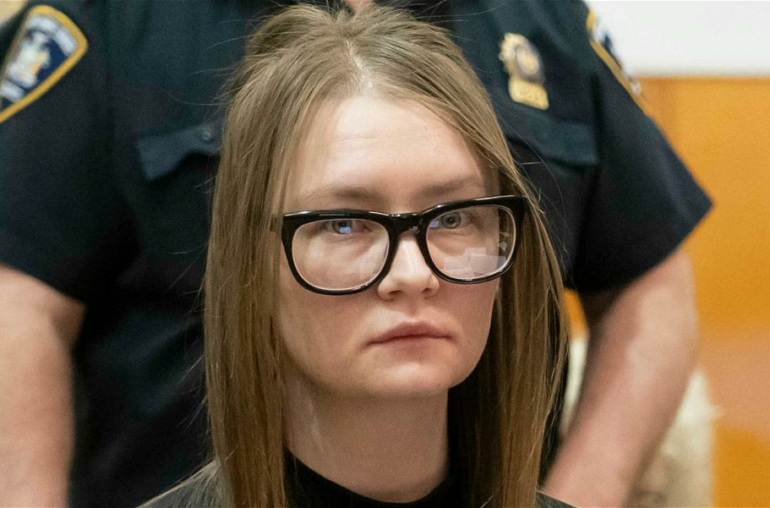
NON-FUNGIBLE TOKENS AND TRADEMARK INFRINGEMENT: WHERE DOES THE LAW STAND?
In Nike v. StockX, LLC, Nike filed a trademark infringement lawsuit against StockX, LLC, an online resale sneaker retailer, in February 2022 in the U.S. District Court for the Southern District of New York. This case is an important one to follow because it will likely shape the course of how intellectual property law will apply to non-fungible tokens (NFTs).
The infringement landed on Nike’s radar when StockX launched Vault NFT which is a collection of digital tokens whereby StockX’s customers can purchase a Vault NFT which is tied to a StockX sneaker. Many of the sneakers offered by StockX are Nike sneakers. The buying, selling and trading of rare sneakers has been a popular fad for many collectors for decades. Acquiring a Vault NFT allows customers to purchase, trade, and sell rare sneakers more easily without taking physical possession of the shoe. Once the customer is ready to take physical possession of the sneaker, they simply redeem their Vault NFT online, and the sneaker tied to the NFT is shipped directly to the customer’s address. Nike took issue with this process although the company itself allows resellers to authenticate and re-sell their shoes all the time. In fact, according to StockX’s answer to the complaint, many senior executives of Nike purchase shoes through StockX’s website often.
Nike’s position in the case is that the Vault NFTs make use of Nike’s trademarks and that StockX is capitalizing off Nike’s goodwill which is misleading customers into paying “heavily inflated prices” for their sneakers. The Vault NFTs in question depict Nike sneakers and, Nike’s trademarks on those sneakers, without Nike’s permission. StockX contends that this is fair use of Nike’s trademarks, no different than e-commerce stores using images and descriptions of products that are sold online. StockX’s entire position revolves around its argument that NFTs are not virtual products or digital sneakers because, in this case, they are tied to a physical good that has already been authenticated by StockX.
The district court will be tasked with determining if this is an actionable trademark infringement case. The U.S. Court of Appeals for the Second Circuit applies the “Rogers test” in determining when the use of a trademark in artistic work is actionable which provides that such uses are only actionable if the mark has no “artistic relevance” to the underlying work, or explicitly misleads as to the source or content of the work (see Rogers v. Grimaldi). For many who are interested in minting their own NFTs, or defending the use of their trademarks in NFTs, this ruling could have broad implications on the application of the Lanham Act to the NFT space. The case is currently in the discovery phase and is one worth keeping an eye on as the case proceeds.
MSCHF CONTINUES THE MISCHIEF
McNees’ IP team has been following the Nike v. MSCHF case which involved a trademark infringement action by Nike against MSCHF for their controversial remake of a Nike shoe, in collaboration with the rapper Lil Nas X. Nike distanced themselves from MSCHF’s modified sneaker, known as Satan Shoes.
As it turns out, MSCHF Production Studio hasn’t given up on its shoe remake collaborations with famous artists. Vans, Inc. filed a trademark and trade dress infringement lawsuit against MSCHF in Vans, Inc. v. MSCHF Prod. Studio, Inc. for its use of Vans’ “jazz stripe” trademark, “Flying-V” mark, “OFF THE WALL” mark, waffle sole mark, and Vans’ footbed logo on MSCHF’s “Wavy Baby” shoe which was made in collaboration with the rapper Tyga.
In the Nike v. MSCHF case, the Satan Shoes were Nike Air Mac 97 shoes which MSCHF attached satanic symbols to but otherwise retained the Nike branding intact. In the Vans case, MSCHF seems to be attempting to avoid the direct use Vans trademarks by altering the Vans trademarks prominently featured on the shoes. MSCHF argued that while the shoe is reminiscent of Vans’ Old Skool shoes, its distortions of the shoe design, and its trademarks, made the Wavy Baby shoes sufficiently distinct from Vans’ Old Skool shoes. MSCHF also argued that its creation of these shoes is protected by the First Amendment as a parodic or artistic expression of Vans’ trademarks and trade dress.
The U.S. District Court for the Eastern District of New York was tasked with assessing whether the differences in the shoes were distinct enough so as to not create consumer confusion, and whether MSCHF’s First Amendment argument had any merit. The district court ultimately granted Vans’ motion of a temporary restraining order and a preliminary injunction on the basis that the striking visual similarities between the shoes, and their respective packaging, were likely to cause consumer confusion. The district court re-emphasized that two marks need not be identical, but rather only similar for there to be a likelihood of consumer confusion under the Lanham Act and in applying the “Polaroid Factors for trademark infringement” (see Polaroid Corp. v. Polarad Electronics Corp). Basically, the court determined that consumers would still think that Vans endorsed the Wavy Baby shoes because it was still recognizable as a Vans shoe. The district court rejected MSCHF’s First Amendment argument because their alleged parody was not original despite MSCHF using their own branding and distorting the original marks, and because the court was not satisfied that the Wavy Baby shoes and packaging conveyed a satirical message.
Here, it appears that MSCHF has attempted to get away with “mischief” two years in a row. It was ultimately unsuccessful at doing so even though it altered the Vans trademarks and trade dress in an attempt to transform the product into its own distinct branding. It is important to remember that trademarks and trade dress need not be identical to constitute trademark infringement. They only need to be similar enough to cause consumers to confuse the source of goods or services or mistakenly believe that the use of the marks is endorsed by the mark owner. Altering another’s marks, in an attempt to create your own, presents significant risks and will not likely lend itself to a fair use defense, particularly if the use of the altered marks is a commercial use.
THE FIRST AMENDMENT TRUMPS THE LANHAM ACT IN EXPRESSIVE TRADEMARKS
In 2018, Elster applied to register the mark “TRUMP TOO SMALL,” for t-shirts, clothing, and other merchandise. Elster argued that the “TRUMP TOO SMALL” mark was an expressive mark which aimed to convey “that some features of President Trump and his policies are diminutive.” A U.S. Patent and Trademark Office (UPSTO) trademark examiner refused this trademark application, concluding that the mark was not registrable citing section 2(c) of the Lanham Act which bars registration of a trademark that “consists of or comprises a name… identifying a particular living individual” without the individual’s written consent. The trademark examiner further argued that the First Amendment was not infringed by this refusal because registration bars in the Lanham Act are not restrictions on speech, and even if they are, such restrictions are permissible. Section 2(f) of the Lanham Act was also cited against the “TRUMP TOO SMALL” mark which bars registrations of trademarks which “falsely suggest a connection with persons, living or dead.” Elster appealed the examiner’s decision to the USPTO Trademark Trial and Appeal Board (TTAB) which affirmed the examiner’s decision to refuse the registration and noted that it did not have authority to determine the constitutionality of section 2(c) of the Lanham Act.
This landed in the U.S. Court of Appeals for the Federal Circuit when Elster further appealed this case, arguing that the registration refusal was an unconstitutional restriction on political speech in violation of the First Amendment. The court noted in its opinion, In Re: Elster, that the main issue in this case was not whether Elster is free to communicate his message without the benefit of a trademark registration, but rather whether a section 2(c) refusal can “legally disadvantage the speech at issue here.” In lock step with recent U.S. Supreme Court decisions granting broader First Amendment rights to trademark applicants, the Federal Circuit Court opinion reversed the TTAB’s refusal and held that this section 2(c) refusal was a violation of the First Amendment as applied because the trademark registration was for protected, controversial political speech regarding a public figure, President Donald J. Trump. The court further found that such speech is always garnered protection and that refusing such applications under section 2(c), just because President Trump’s name was included in the trademark application, could “chill speech anywhere from the internet to the grocery store.” Furthermore, the court found that First Amendment protection is not lost on the basis that the speech is commercial in nature.
This case is a major win for trademark applicants and owners because it recognizes that trademarks are not merely an indicator of source, but also a mode of expression entitled to First Amendment protection when intended to convey an expressive message. Decisions such as this one provide additional guidance on the “registrability” of expressive trademarks that might invoke the applicant’s First Amendment rights.
See more »
DISCLAIMER: Because of the generality of this update, the information provided herein may not be applicable in all situations and should not be acted upon without specific legal advice based on particular situations.
© McNees Wallace & Nurick LLC var today = new Date(); var yyyy = today.getFullYear();document.write(yyyy + ” “); | Attorney Advertising
Refine your interests »
Back to Top
Explore 2022 Readers’ Choice Awards
Copyright © var today = new Date(); var yyyy = today.getFullYear();document.write(yyyy + ” “); JD Supra, LLC


